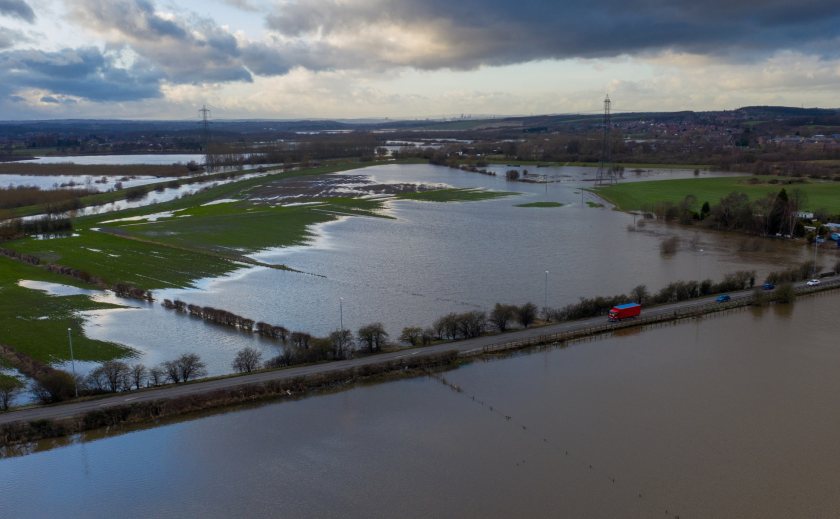UK food security 'at risk' as climate displacement hits farms worldwide

Climate change is fuelling extreme weather and displacement in key food-producing countries, posing a rising risk to the UK’s food supply, according to new analysis.
The report reveals that £3 billion worth of UK food imports – including staples like rice, tea and mangoes – come from the top 20 countries with the highest levels of climate-related displacement. All are rated as unprepared for climate change.
Pakistan, the UK’s second-largest rice supplier, is currently facing severe flooding, following a 2022 disaster that saw record rainfall, 1,700 deaths, millions displaced, and major crop losses.
In 2023, 1.2 million Pakistanis were internally displaced by extreme weather, second only to China, according to the Energy and Climate Intelligence Unit (ECIU) report.
Recent floods in 2024 have killed over 300 people, with more heavy rainfall forecast. Scientists estimate this year’s monsoon rains were 15% more intense due to climate change.
The impact is already being felt in UK food prices. From 2022 to 2023, the average price of rice from Pakistan rose by 33%, as harvests were hit and supply chains disrupted.
“When floods and droughts force farmers overseas to leave their homes, they often head to cities, breaking apart rural communities and raising serious questions about who will grow the food we import,” said Gareth Redmond-King, head of international programme at the ECIU.
“Unless we reach net zero, climate threats to our food security will continue to worsen.”
Camilla Toulmin, senior associate at the International Institute for Environment and Development, warned that recent UK aid cuts risk weakening international partnerships and food system resilience:
“With more volatile food systems, our own food security is increasingly at risk.”
Currently, 15% of UK food imports (worth £8 billion) come from countries with low climate readiness. These include crops not suited to the UK climate. Without overseas farmers, access to these foods would be severely limited.
The UK contributes to international climate finance, supporting farmers in vulnerable countries like Pakistan through initiatives such as the Acumen Climate Action Pakistan Fund.
ECIU analysis shows UK finance has supported at least 348 climate adaptation projects across 111 countries, 84 of which supply food to UK supermarkets.
Professor Tobias Heidland of the Kiel Institute said: “Smart climate finance is an insurance policy. Helping farmers adapt will always be cheaper than dealing with the fallout of crises.”








